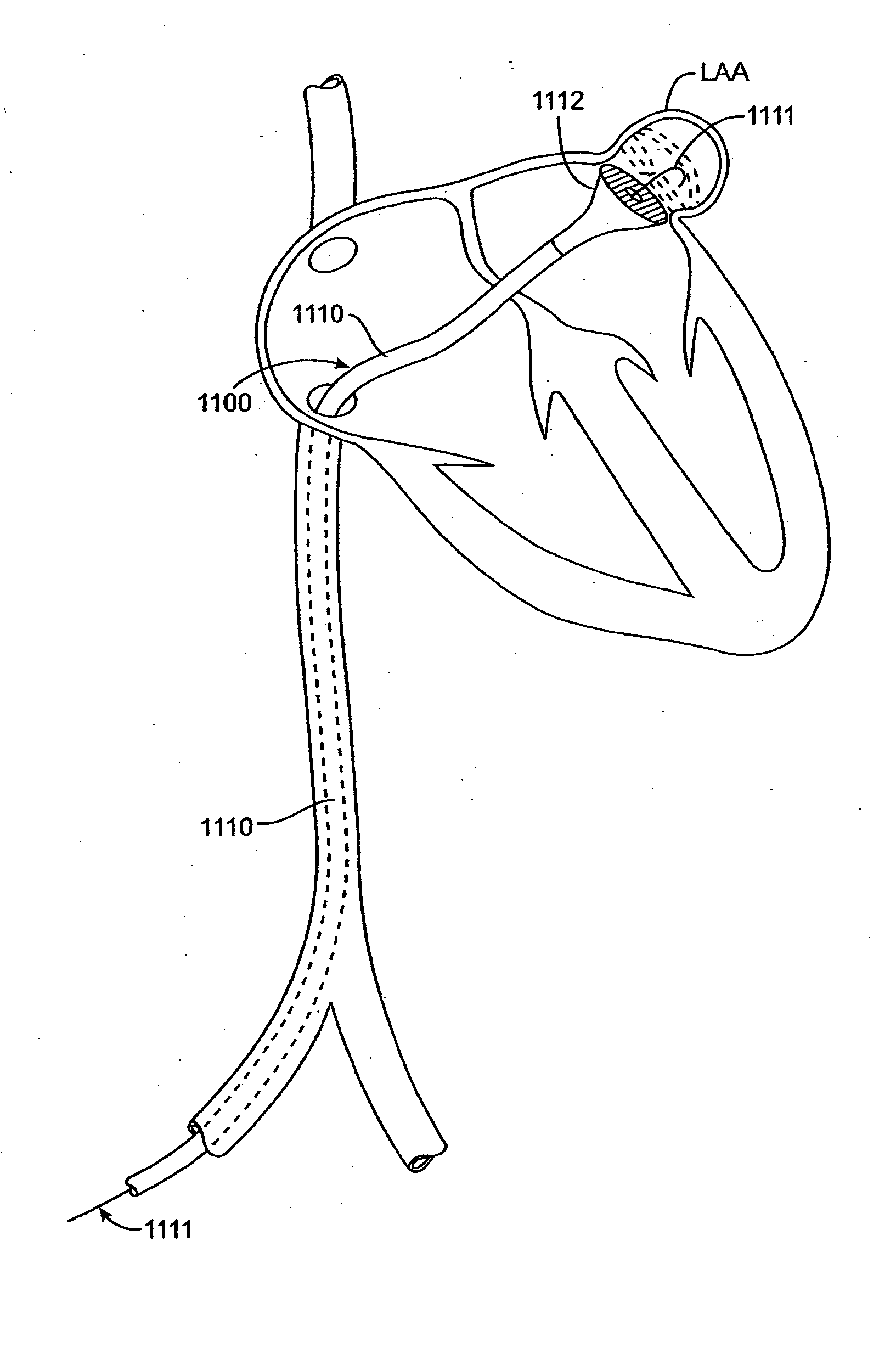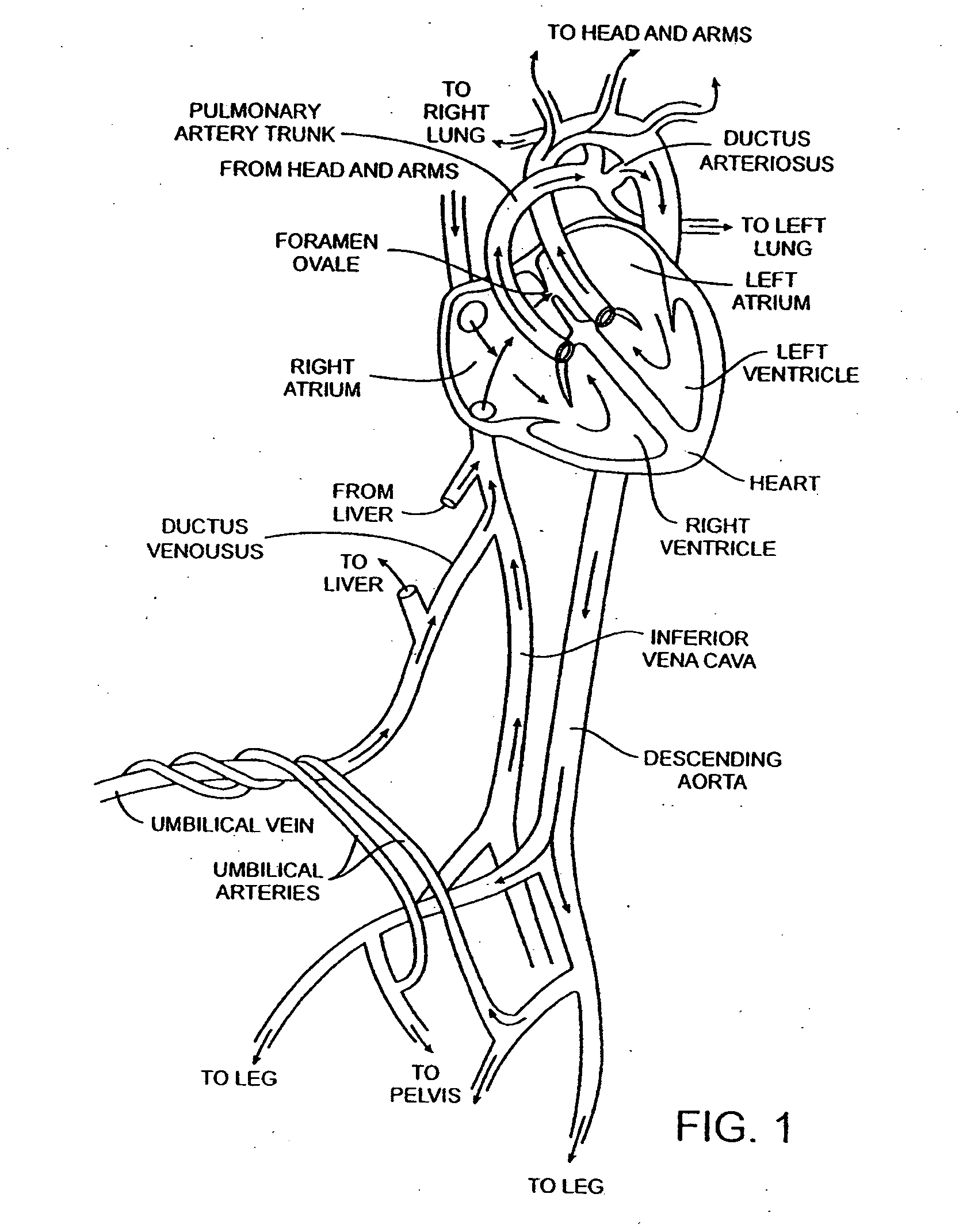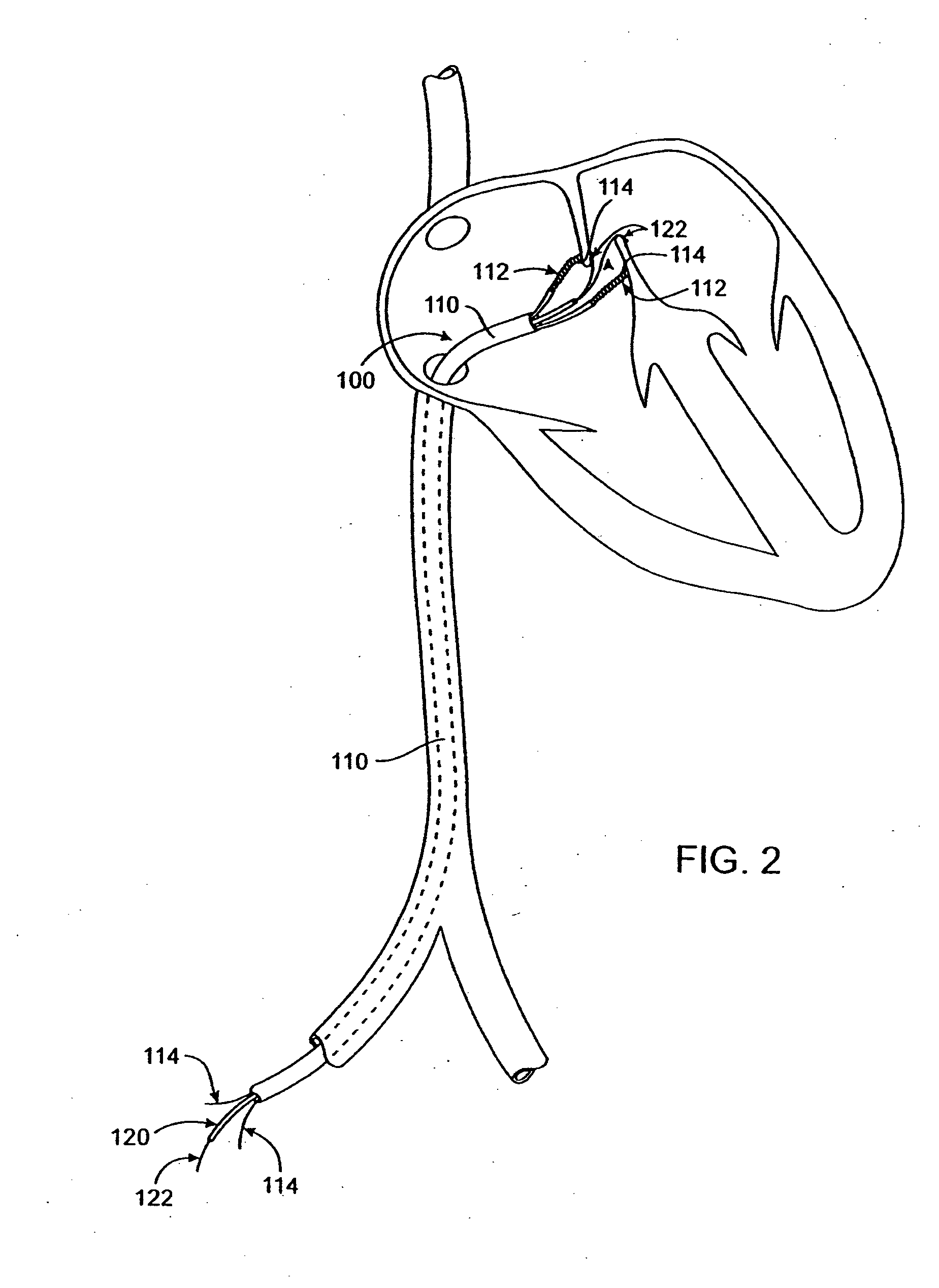Energy based devices and methods for treatment of anatomic tissue defects
a technology of anatomic tissue and energy-based devices, applied in the field of medical devices and methods, can solve the problems of one or more small gaps or openings, substantially closed anatomic defects, etc., and achieve the effect of facilitating electrode positioning
- Summary
- Abstract
- Description
- Claims
- Application Information
AI Technical Summary
Benefits of technology
Problems solved by technology
Method used
Image
Examples
Embodiment Construction
[0050] Devices and methods of the present invention generally provide for treatment of anatomic defects in human tissue, such as patent foramen ovale (PFO), atrial septal defect, ventricular septal defect, left atrial appendage, patent ductus arteriosus, vessel wall defects and / or the like through application of energy. In addition, electrophysiological defects, such as atrial fibrillation, supraventricular tachycardia (SVT), atrial flutter, A-V node re-entry, and Wolf Parkinson White syndrome, may be treated with devices and methods of the present invention. The following descriptions and the referenced drawing figures focus primarily on treatment of PFO, however any other suitable tissue defects, such as but not limited to those just listed, may be treated with various embodiments of the invention.
[0051] As mentioned above in the background section, FIG. 1 is a diagram of the fetal circulation. The foramen ovale is shown, with an arrow demonstrating that blood passes from the rig...
PUM
 Login to View More
Login to View More Abstract
Description
Claims
Application Information
 Login to View More
Login to View More - R&D
- Intellectual Property
- Life Sciences
- Materials
- Tech Scout
- Unparalleled Data Quality
- Higher Quality Content
- 60% Fewer Hallucinations
Browse by: Latest US Patents, China's latest patents, Technical Efficacy Thesaurus, Application Domain, Technology Topic, Popular Technical Reports.
© 2025 PatSnap. All rights reserved.Legal|Privacy policy|Modern Slavery Act Transparency Statement|Sitemap|About US| Contact US: help@patsnap.com



